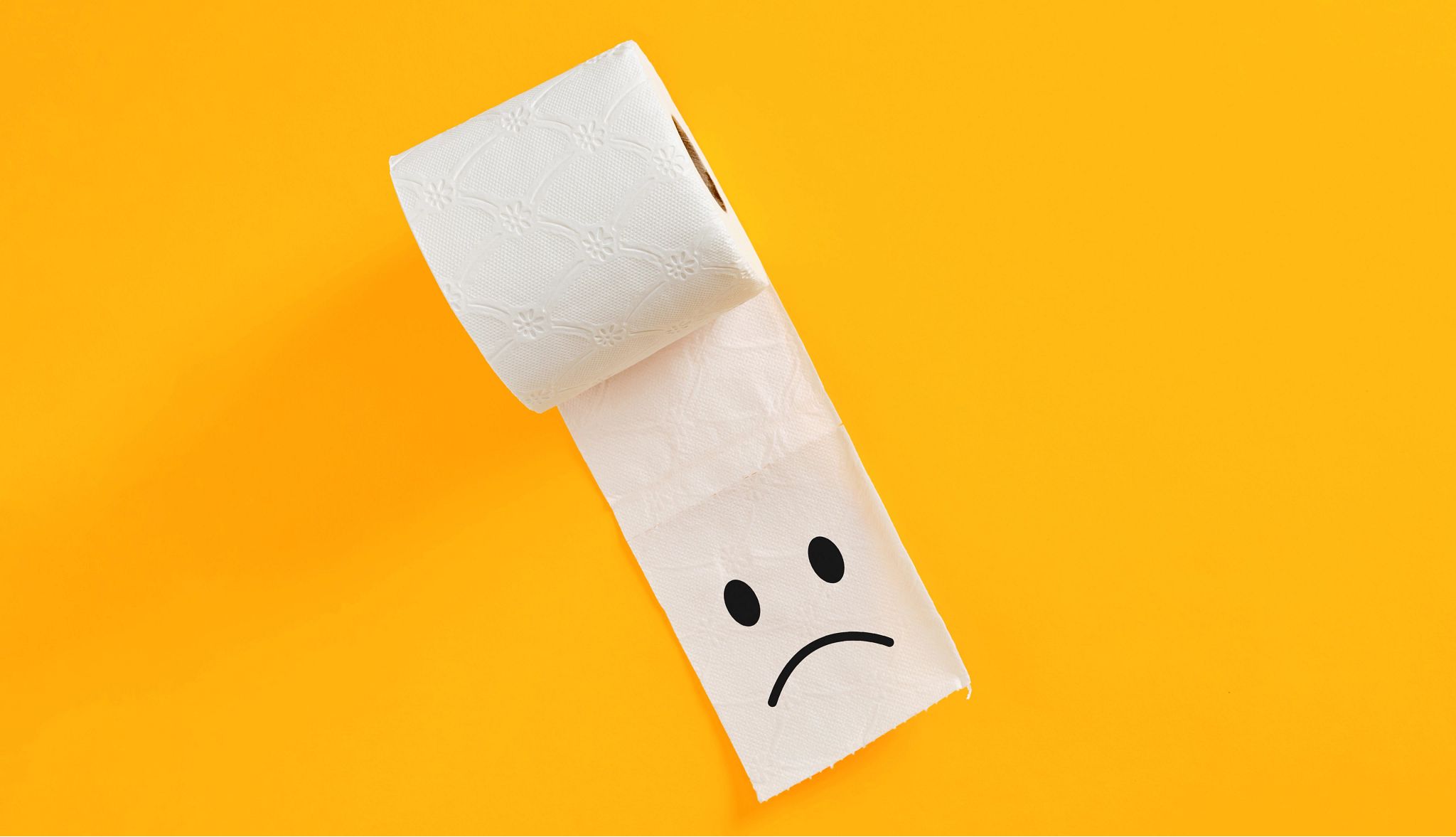AARP Hearing Center


Millions of older people suffer from constipation, sometimes for years. Long-term constipation is not only uncomfortable, it's also linked to hemorrhoids and other health problems, so it's important to try to stay regular.
There’s no magic number for how often a person should have a bowel movement, but if you aren’t going at least three times per week or have trouble passing stool, you might have a form of constipation, according to the National Institute on Aging. This common condition affects 26 percent of women and 16 percent of men age 65 and up. This increases to 34 percent of women and 26 percent of men age 84 and older, according to the National Institutes of Health (NIH).
Read on the learn the causes and treatments to help you go more regularly.
Causes of constipation
Having a difficult time going to the bathroom gets worse as we age. Culprits include a lack of fiber in the diet, not drinking enough water, inactivity, medications, supplements, hormonal fluctuations, bowel disorders and conditions that affect movement, like Parkinson’s disease. I If you are struggling and straining on the toilet, you are more likely to have hemorrhoids, inflamed veins around your lower rectum, which about half of people age 50 have them according to the National Institutes of Health.
In addition, with joint issues, or osteoarthritis, rheumatoid arthritis, can affect how well and often people move around. So, limitation in physical activity is a very big thing, says Margaret Schwiesow, gastroenterologist with Kaiser Permanente in Falls Church, VA.
Stress and trauma also play a role in digestive issues. Bessel van der Kolk, M.D. talks about how the body stores trauma in his best seller “The Body Keeps The Score,” and addresses the delicate equilibrium in our mind–body connection. From the book, “Traumatized people chronically feel unsafe inside their bodies: The past is alive in the form of gnawing interior discomfort. Their bodies are constantly bombarded by visceral warning signs, and, in an attempt to control these processes, they often become expert at ignoring their gut feelings and in numbing awareness of what is played out inside.” Medications such as antidepressants to treat mental health conditions caused by stress and trauma can also affect digestion and cause constipation.
The good news is that there’s a lot of options for you to get relief.
What helps with constipation?
The good news is there are lots of options to help you feel better. Here are eight things you can do to help you get relief.
1. Water
“My simple rule of thumb for people is minimum half your body weight in ounces of water a day,” says gastroenterologist Robynne Chutkan, M.D. who sees patients at Georgetown University Hospital. She is the author of four books on gut health and host of the podcast Gutbliss where she discusses constipation and other GI ills.
“I recommend first thing in the morning, because when you drink a big glass of water, that triggers something called the gastrocolic reflex, which is the message your stomach sends to your colon to say food is coming in or drink is coming in,” she says, which stimulates the colon to contract.
Water can also help fiber move through the digestive system, according to Johns Hopkins Medicine. Not getting enough water can result in dried stool that is difficult to pass.




































































More From AARP
Digestive Changes and Health at 50-Plus
Understand digestive changes at 50-plus and find reliefWhat Your Poop Can Tell You About Your Health
The #1 reason to pay attention to your #2
Try These Tips for Living a Healthier Life
Small changes can add up to big mental and physical results